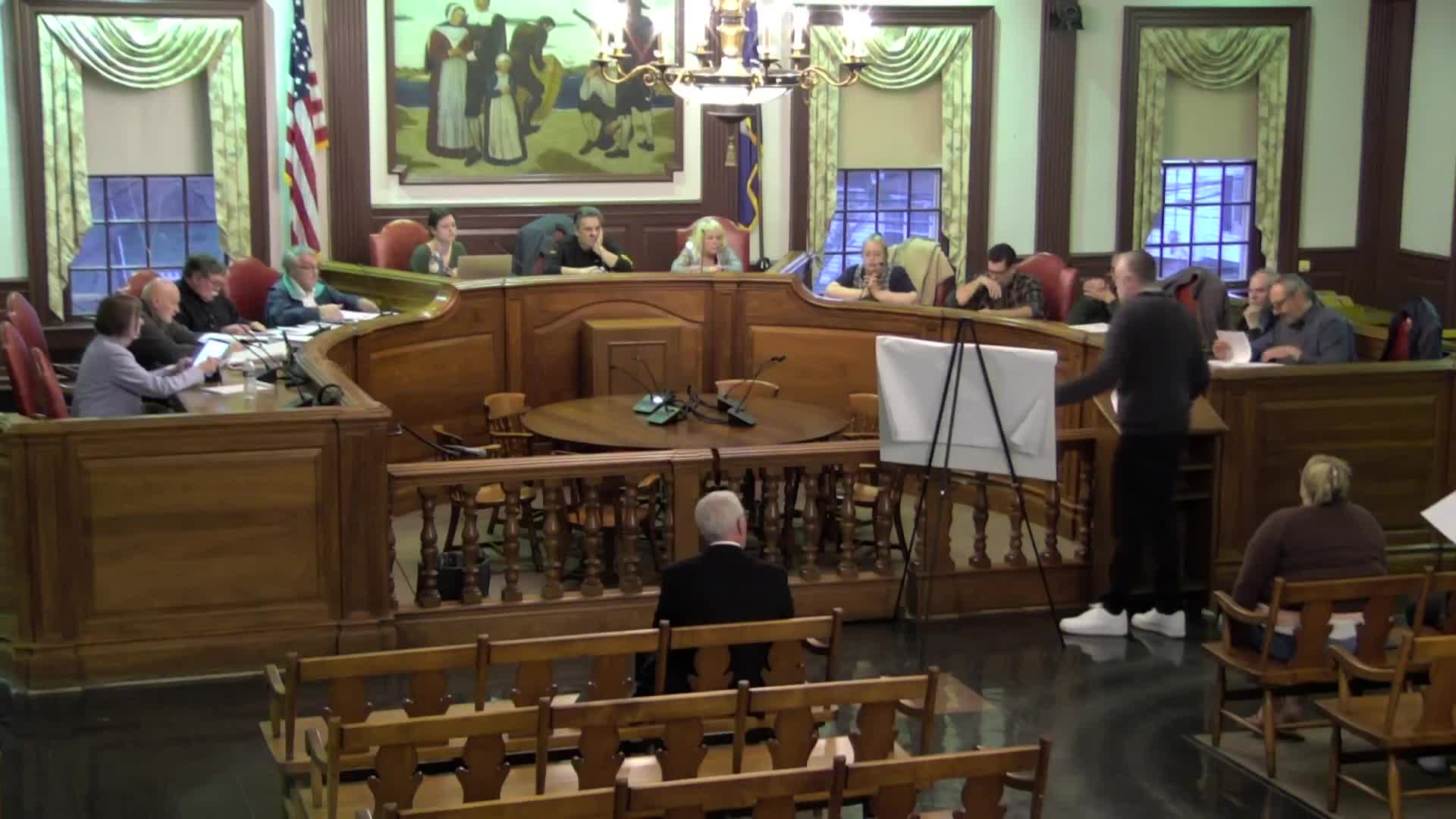Stratford Inland Wetlands Commission debates Mountain Development Corp's multifamily project proposal
April 18, 2024 | Town of Stratford, Fairfield, Connecticut

This article was created by AI summarizing key points discussed. AI makes mistakes, so for full details and context, please refer to the video of the full meeting. Please report any errors so we can fix them. Report an error »

In the dimly lit chambers of the Stratford Town Hall, members of the Inland Wetlands Commission gathered on April 18, 2024, to deliberate on pressing matters concerning local development and environmental regulations. The atmosphere was charged with anticipation as discussions unfolded around a proposed project that had seen its fair share of scrutiny and revisions.
At the heart of the meeting was a proposal to relocate sewer laterals to connect with Silver Lake, a decision that was met with some contention. The project’s representative, Mr. Edwards, emphasized that the adjustments made to the plan were minor and primarily focused on ensuring compliance with state stormwater regulations. Notably, he highlighted that no new homes would be constructed within the Upland Review Area, a significant change from previous plans that had included residential developments in this sensitive zone.
As the conversation progressed, questions arose regarding the timeline of document reviews by town officials. Commissioner Waite inquired about the delays in feedback from the engineering department, which had been a point of frustration for many involved. The back-and-forth revealed a complex web of approvals required from various departments, including fire and health, which often led to confusion about the status of the project and its compliance with existing regulations.
Tensions escalated as members debated the implications of a cease and desist order that had halted work on a church remodeling project nearby. The commission grappled with the challenge of balancing regulatory oversight with the need for timely approvals. Some members expressed concern that the ongoing modifications to the project could lead to further delays, complicating the approval process.
The discussion took a turn as the commission considered the necessity of a performance bond, a requirement that had been previously agreed upon but was now under scrutiny. The representatives argued that the bond should not be a barrier to progress, suggesting that the commission could approve the project with stipulations, allowing for further adjustments as needed.
As the meeting drew to a close, the commission opted to table the decision, leaving the door open for a special meeting should the necessary reviews be completed swiftly. The urgency in the room was palpable, with members eager to resolve the outstanding issues and move forward with the project.
In the end, the meeting underscored the delicate balance between development and environmental stewardship in Stratford. As the commission navigates the complexities of local regulations, the outcome of this proposal will likely set a precedent for future projects, highlighting the ongoing dialogue between progress and preservation in the community.
At the heart of the meeting was a proposal to relocate sewer laterals to connect with Silver Lake, a decision that was met with some contention. The project’s representative, Mr. Edwards, emphasized that the adjustments made to the plan were minor and primarily focused on ensuring compliance with state stormwater regulations. Notably, he highlighted that no new homes would be constructed within the Upland Review Area, a significant change from previous plans that had included residential developments in this sensitive zone.
As the conversation progressed, questions arose regarding the timeline of document reviews by town officials. Commissioner Waite inquired about the delays in feedback from the engineering department, which had been a point of frustration for many involved. The back-and-forth revealed a complex web of approvals required from various departments, including fire and health, which often led to confusion about the status of the project and its compliance with existing regulations.
Tensions escalated as members debated the implications of a cease and desist order that had halted work on a church remodeling project nearby. The commission grappled with the challenge of balancing regulatory oversight with the need for timely approvals. Some members expressed concern that the ongoing modifications to the project could lead to further delays, complicating the approval process.
The discussion took a turn as the commission considered the necessity of a performance bond, a requirement that had been previously agreed upon but was now under scrutiny. The representatives argued that the bond should not be a barrier to progress, suggesting that the commission could approve the project with stipulations, allowing for further adjustments as needed.
As the meeting drew to a close, the commission opted to table the decision, leaving the door open for a special meeting should the necessary reviews be completed swiftly. The urgency in the room was palpable, with members eager to resolve the outstanding issues and move forward with the project.
In the end, the meeting underscored the delicate balance between development and environmental stewardship in Stratford. As the commission navigates the complexities of local regulations, the outcome of this proposal will likely set a precedent for future projects, highlighting the ongoing dialogue between progress and preservation in the community.
View full meeting
This article is based on a recent meeting—watch the full video and explore the complete transcript for deeper insights into the discussion.
View full meeting
